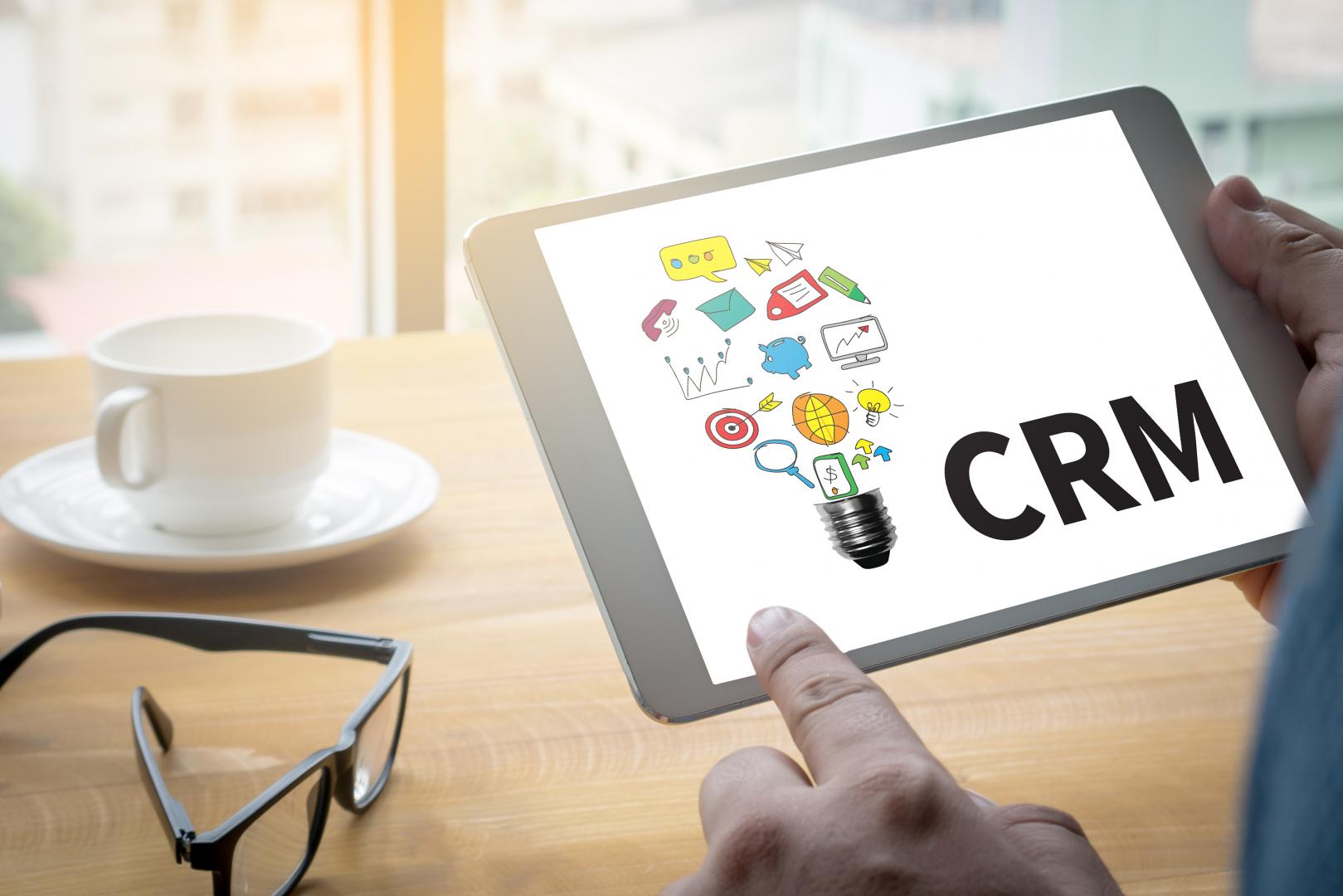In this era where digitization and automation are mandatory for businesses, CRM software is a godsend. Although the majority of businesses are maintaining their business efficiency with the smart use of CRM software, others still lag.
Irrespective of the size, businesses cannot ignore customer relationship management. It serves as a base for achieving other objectives like higher conversions, more profits, and customer retention, etc. Apart from it, one key benefit of CRM software is cost-cutting. Yes, it reduces cost in not just one but eight different ways.
Let us learn how:
1. Eliminate the Cost of Hiring Multiple Workers
The ultimate aim of CRM software is to bring business efficiency. Due to this, it reduces cost remarkably. When we use CRM software, we can avoid unnecessary costs or those costs that are incurring due to poor business management.
For instance, a real estate business is getting too many customer queries. To manage this situation, the business owner has added new members to the customer support team. This has increased the overall business cost.
If we use real estate CRM software in this case, it can help in effectively managing the customer queries without increasing the cost of paying additional employees every month. Thus, the same number of queries will now be handled systematically.
Similarly, when things are done through software rather than manually, the chances of human error are low. We all know how even a minute mistake can disrupt the business image and rebuilding the image requires a lot of effort, time, and investment.
2. Reduce Paper Waste
Though it might not look like a big expense, stationery alone can increase the overheads by a big margin. When a company is using CRM software, it does not need any records on the soft copy.
Some companies still use a soft copy of consumer data but when you are using CRM, you do not need any records on paper. This virtual record not only brings ease and convenience but also eliminates the hurdle of sharing. In just a few clicks, you can share complete data records with other team members.
Emails, documents, contact details and much more can be easily shared. Above all, everything is traceable so chances of error are minimal. Apart from it, it enables the sales team to create and share customized reports of consumer data with other departments like the finance and marketing teams.
Thus, it eliminates the need for pen and paper in a firm. Furthermore, time saved in maintaining the digital records can be utilized in performing the core business duties, which also reduces the business cost.
3. Control the Production Cost
Another way in which CRM contributes to reducing cost is its vital role in production analysis. Yes, features like accounting and analysis help in determining and managing the goods in stock. Furthermore, it helps in analyzing the high demand goods. Today, brands struggle to find out the products that can do a good business and refrain from further investing in low-demand products.
When you are on the right track means you know which product is best suited for the business, you can reduce your cost by not manufacturing unnecessary products. Similarly, the data analysis can help to determine the outcome of each product in different areas, cities, and or countries.
For instance, a newly introduced ice cream flavor had a great response in North American countries. After knowing it, the company stopped its production in Asian countries and utilized this budget for the North American countries.
In the same way, companies can control production by determining the low and peak seasons of sales. Thus, data gathered from the CRM software is of immense importance. If it is fully utilized, it can make a big difference in the production expense.
4. Reduce the Customer Acquisition Cost
We all know how expensive it is to acquire new customers. However, it is a mandatory part of business growth and expansion. Some co/ companies spend billions of dollars in customer acquisition while others acquire new leads at a reduced cost.
Why is there a difference when every other brand has a commendable strategy? One reason is the use of CRM software. This software helps in targeting the right group. Instead of predictions, it provides you an actual data to forecast your sales and plan the marketing tactics. Besides this, it helps in bringing personalization by telling the touchpoints, time, and browsing history of customers.
Furthermore, it helps in welcoming the customers by automated sales messages during the purchase cycle. Such messages play a big part in making the customers feel overwhelmed by the brand. Thus, an amalgamation of all such parts helps in acquiring new clients at a reduced cost.
5. Reduce the Customer Service Maintenance Cost
Since CRM supports automation, many customer queries are automatically resolved. Moreover, customers find this platform as a self-service portal and quickly resolve their concerns on their own. On the other hand, CRM makes it possible to reduce the service cycle by deducting the transits.
For example, if a customer is looking for a short-term loan, he does not need to make an appointment with you, sit with you, and have a detailed discussion on it. With the help of a CRM, you can provide an online form as soon as he clicks on the short-term loan option. After filling this form, the system will analyze the eligibility criteria and transfer the request to the concerned manager.
However, if CRM software is not present, a customer would have taken enough time. On the other hand, companies need to bear a hefty expense for providing quality service at each level. In simpler terms, the more time you give to your customer, the more cost you need to bear. Today, customer’s mind is also changed. Prospects now look for less time taking and highly responsive service. Thus, CRM is an ideal choice.
6. Improves Tracking Methodology
Tracking is the best way to keep your strategies in the right direction. Instead of using multiple tools for tracking data, brands can efficiently track the results with a CRM. Yes, a single CRM software can serve the needs of multiple teams.
For instance, the marketing team can use the data to know which strategy was useful in getting the most outcome, a sales team can know the number of conversions, and the service team can track the data about customer retention. When all such tracking is being done at the right time, low overheads are guaranteed.
7. Removes Duplicate Records
Handling huge customer data is not simple. One of the biggest issues in handling such records is duplication. Thankfully, CRM has successfully removed this problem and now the sales teams cannot get confused with duplicate records. When duplication is present, sales team members work on the same customer twice.
This results in increasing expense along with putting double effort and time. However, CRM makes the whole data screen visible to every member of the team. It means members can view which customer has been contacted by whom.
Thus, the sales teams do not approach the same customer multiple times. This strategy of contacting the same potential customer repeatedly often results in low conversions. Since prospects get the same emails/messages/calls frequently, they start questioning the business identity of the brand.
8. Streamline the Business Process
Since CRM works as a one-stop-shop of consumer data, sales teams can manage and plan things efficiently. For instance, from one platform they can track the records of new customers, schedule meetings or appointments, plan follow-ups, and send quotes and orders. Since everything works systematically, it saves a big amount of time, which in turn reduces cost. The time saved can be utilized in focusing on other business objectives and the cost-saving can be used for marketing activities.
For instance, when a salesperson closes the file of one customer, only then he can contact the new customer in line. In this way, there is less work pressure and high motivation among employees.
Apart from it, it lets the sales team organize their routine tasks, focus on the priority projects, and give attention to the core customers. Al these factors are directly or indirectly related to reducing the business cost.
Wrapping It Up
Undoubtedly, CRM software offers tremendous benefits to both big and small-scale business organizations. Apart from eliminating the risk of human error and saving time, one of the biggest benefits of this software is cost-cutting. It automates a large part of customer service, thus reduces the expense of hiring multiple sales team members.
Similarly, it reduces paper waste and helps in controlling the manufacturing cost. Customer acquisition and customer service maintenance costs can also be controlled through a CRM.
Apart from it, it assists in tracking the records of data, which serve as a base for planning future strategies. Duplicate records, which often results in creating confusion among the sales team is not a problem with CRM. Above all, it streamlines the entire business process and helps in achieving business efficiency by reducing cost in several ways.




















![TamilMV Proxy List Top 30+ [Unblock TamilMV Sites] TamilMV Proxy Unblock](https://technewsgather.com/wp-content/uploads/2023/04/17825836_SL-121019-25870-14-1-100x70.jpg)